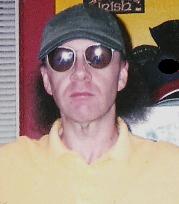Post-Battle Tattooing Ritual 'As Old As War Itself'
He prayed that every Marine entrusted to his care would make it out of Iraq alive. But a roadside bomb claimed one of his men, then two more fell in Fallujah. Now, almost a year after Capt. Michael Pretus returned from the war, he said, "There's not a day, not an hour that goes by that I don't think of them." 






<< Home